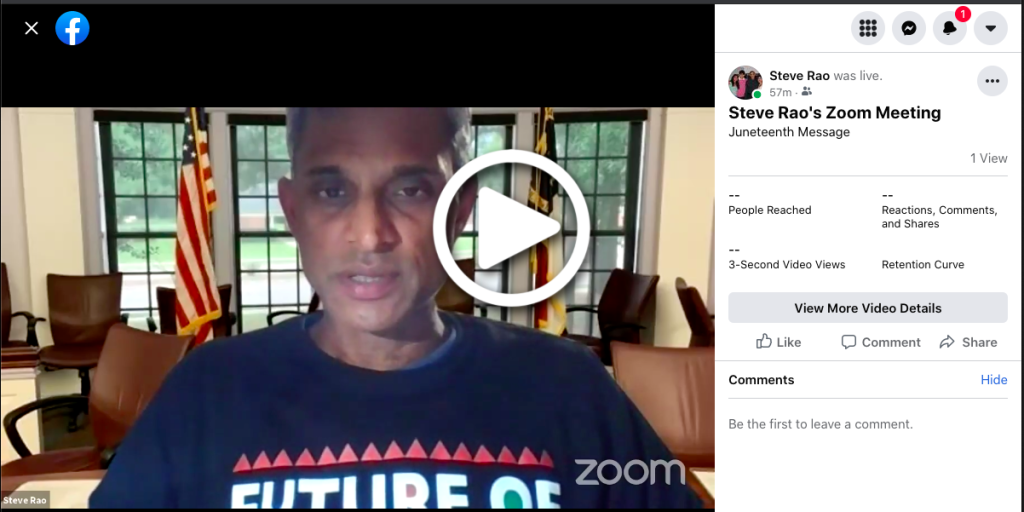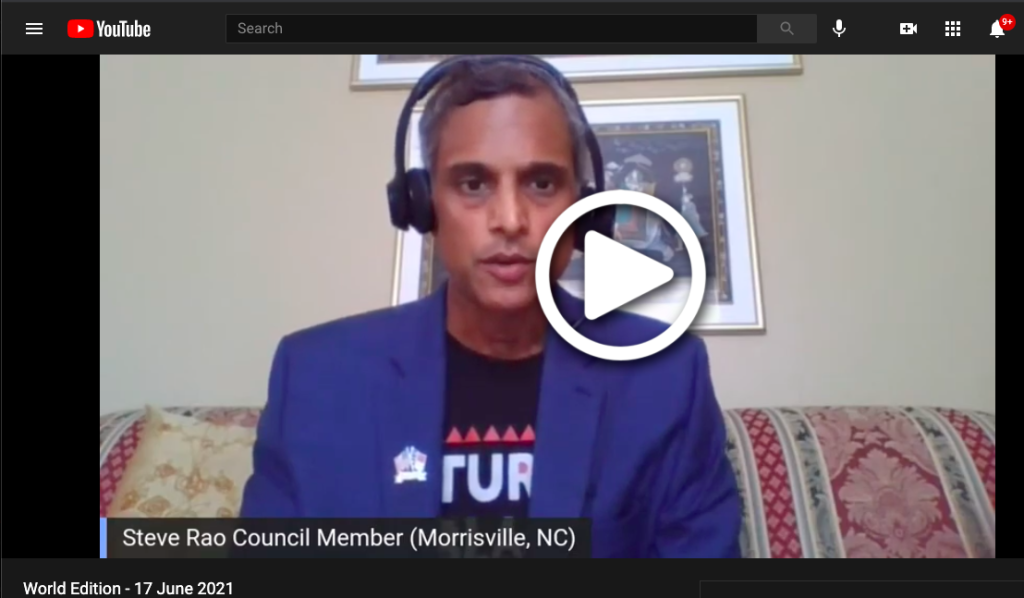
My Juneteenth Message
My Juneteenth Message:
https://www.facebook.com/steve.s.rao/videos/10157838768956360/?t=47
My Juneteenth Monologue from POD TV World Edition:
https://youtu.be/9yizVupERM0?t=135
Juneteenth, also known as Jubilee or Freedom Day marks a day in 1865 when enslaved Texans learned they’d be free—two months after Robert E. Lee surrendered and ended the Civil War and two and a half years after President Abraham Lincoln issued the Emancipation Proclamation. Initially a uniquely Texan observance, Juneteenth has now been recognized in some form in every corner of the country.
Lessons about Juneteenth need to recognize the challenges those who fight injustice have always faced, but they shouldn’t be marked only by the tragedy of enslavement. Our nation, particularly our youth, can find empowerment in the jubilant celebrations of culture, activism and the humanity of all people.
More importantly, it is important for all of us to ask ourselves a fundamental question:
How can a country celebrate the idea of freedom and liberty for all while also oppressing and treating an entire group of people as property?
July 4th celebrations of independence went on for 89 years before the United States abolished slavery. In many ways, Juneteenth is our second Independence Day, when the famous words of our Declaration of Independence, “All men are created equal.” Became true for all of us.
Abolitionist Frederick Douglass acknowledged July 4th Independence Day as “inhuman mockery and sacrilegious irony” during his July 5, 1852 speech in Rochester, New York.
Although the truth had been hidden from them—and they continued to face threats of continued oppression, violence and death—a year after they learned of their freedom, formerly enslaved people resiliently rallied around that date and made the celebration an annual ritual. Early Juneteenth observances included a search for lost family members and an opportunity to uplift each other as they continues to move through hostile environments.
Early celebrations involved readings of the Emancipation Proclamation, religious ceremonies, singing, games and enjoying foods that enslaved people ate. Today, it doesn’t look that much different. People retell histories, have family reunions, eat foods reminiscent of early Juneteenth celebrations such as barbeque, attend religious services or choir performances and have elaborate displays such as fancy dress and parades.

